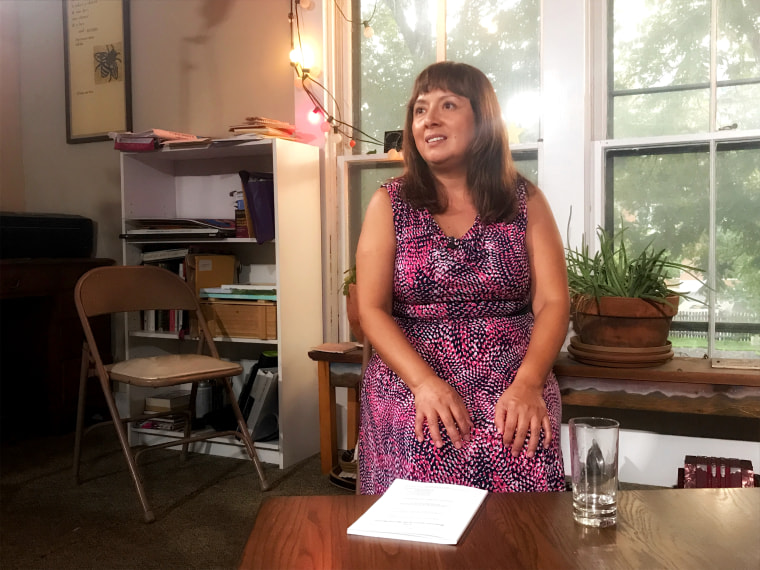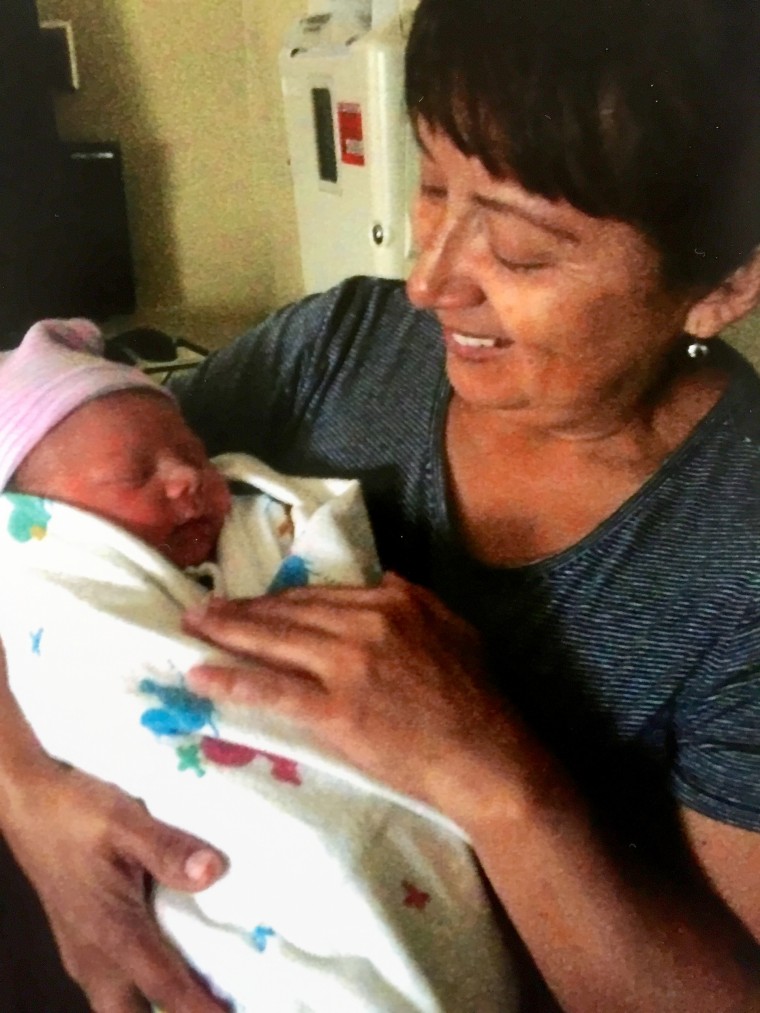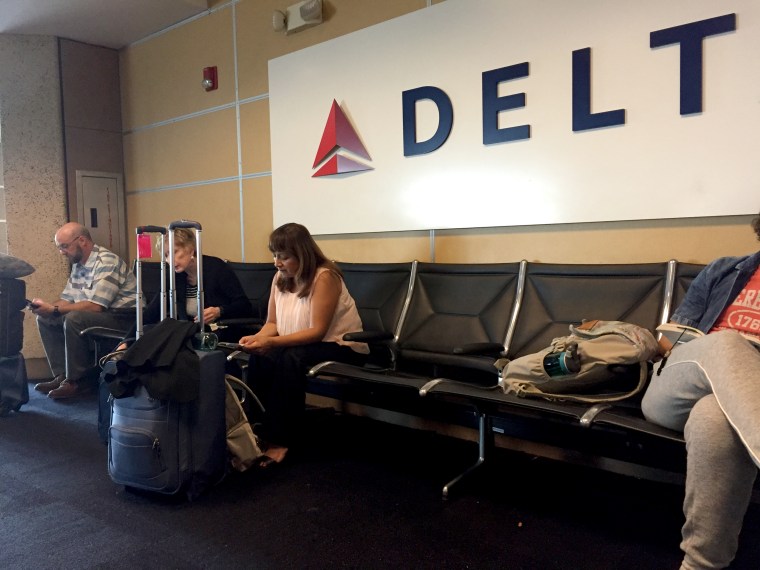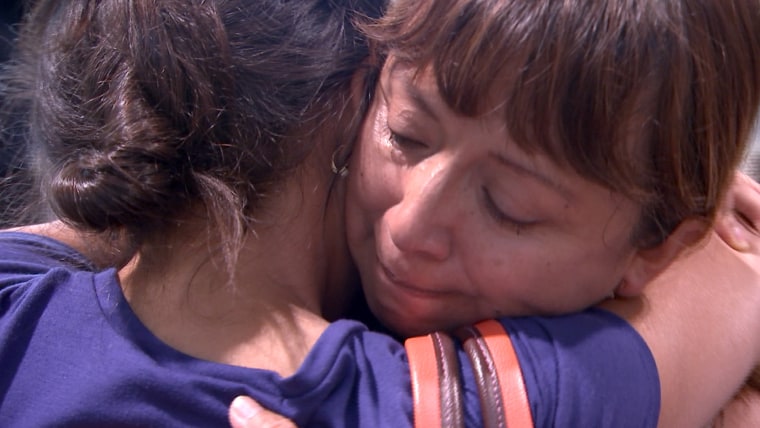LAWRENCE, Kan. — As she held her two-week-old grandson, Margarita Fitzpatrick prepared for a family dinner she'd never forget.
Then she cried.
"Leaving them behind is heartbreaking," she said. "There are no words to describe (it)."
The dinner at her daughter's home would be her last in the country she loved.
In just hours, Fitzpatrick would have to board a plane to her native Peru at the order of immigration officials. Her legal options had been exhausted. Ten long years of court battles had come to this.
She was being deported.
"I cannot process it," she said, choking back tears.
Without much evidence, President Donald Trump has often referred to millions of people voting illegally in this country. Fitzpatrick now admits she did cast two ballots improperly — but she insists it was not intentional.
Her story is one that stretches over three presidential administrations: those of Presidents George W. Bush, Barack Obama and Donald Trump. It's a story that sheds light on potential gaps in federal law, the limits of the judicial system and the agonizing consequences of what one woman calls a horrible mistake.
Related: Trump Voter Fraud Commission Could Not Be More Divided
Fitzpatrick left Peru in 2001 and legally came to the U.S. to seek a better life in America with her three daughters.
She found it.
She decided to study English and earn a certificate as a medical translator. Eventually, she married and got a green card as she pursued a career in nursing. Her three daughters, born in Peru, became naturalized U.S. citizens.
She applied for an Illinois driver's license in 2005, presenting her Peruvian passport and her green card. On one form, she declined to register to vote. But she said a clerk asked her if she wanted to register to vote. When she asked the clerk if she was "supposed to," she said the clerk responded: "It's up to you."
"Non-citizens should not be asked this question — period," Fitzpatrick said.
On another form, she checked the "yes" box next to the question: "Are you a U.S. citizen?" She said she thought that was the closest thing to her status — "legal permanent resident."

Then she voted — in two elections. She claimed she only voted for a local school superintendent candidate, because her daughters were in the schools.
It wasn't until she applied to become a citizen in 2007 that she said she learned those votes had been illegal. She admitted to the immigration officer what she did. The government soon started efforts to deport her.
"I was misled," she said. "I want the society to know that I am truly sorry for this error."
Related: 45 States Refuse to Give Data to Trump Voter Fraud Panel
Her lawyer, Richard Hanus, said he has brought her case to the Supreme Court. He said the Court has already declined to act to directly stop her removal, but he believes a review of lower court decisions in her case remains possible.
"I am not a criminal," she said. "I am a nurse. I am a grandmother — and I am a mother."
The National Voter Registration Act of 1993 — or Motor Voter Law — states that driver's license clerks cannot "make any statement to an applicant or take any action the purpose or effect of which is to discourage the applicant from registering to vote."
The Department of Homeland Security, in response to an NBC News request earlier this year, said that it could not provide statistics about how many non-residents have been charged for removal for such illegal voter registration and voting violations.

Fitzpatrick and her daughters are pleading for changes in Motor Voter law policies that could prevent other non-citizens from falling into what they see as a "trap."
Related: Vote Fraud Panel Head Casts Doubt on 2016 Election Tally
"Asking non-citizens if they'd like to register to vote is not just — but it is the law," Margarita's daughter Connie said. "In a way, it's saying that entrapment is okay. And that is not just."
A federal judge reviewing Fitzpatrick's case appeared to make the same point, asking prosecutors why she was even asked about registering to vote in the first place when the clerk should have seen she wasn't an American citizen.
In response to a request Fitzpatrick made in a letter she wrote its governor in 2009, the state of Illinois changed its policy, instructing personnel to remind applicants that they must be U.S. citizens to apply to register to vote.
Despite all that, all courts involved have ruled that Fitzpatrick broke the law and must be deported.
Just because she might not have known she was committing a crime, it doesn't change the fact that she did, said Thomas Fitton, president of Judicial Watch, a conservative public interest group.
"Like everyone else caught making a mistake that is actually a crime, they have [the] ability to tell it to the judge," Fitton said. "And if someone doesn't buy it, that's the way the system works."
Her family has started a crowd-funding website to help with the legal fight.

She was taken into Immigration and Customs Enforcement custody in 2015 for a day before being released on supervision as the appeals process continued.
This week, with all legal options exhausted — except for that last-ditch petition to the Supreme Court — she obeyed the U.S. government’s deportation instructions, packed her belongings and drove to the airport in Kansas City.
Through tears, she clutched her new grandson for likely the last time on American soil — and said goodbye to her daughters.
Then, she stepped through security, boarded the plane and started the nearly 4,000-mile journey to Lima.
"I am truly sorry for this error," she said. "I could never have done anything against this country."

